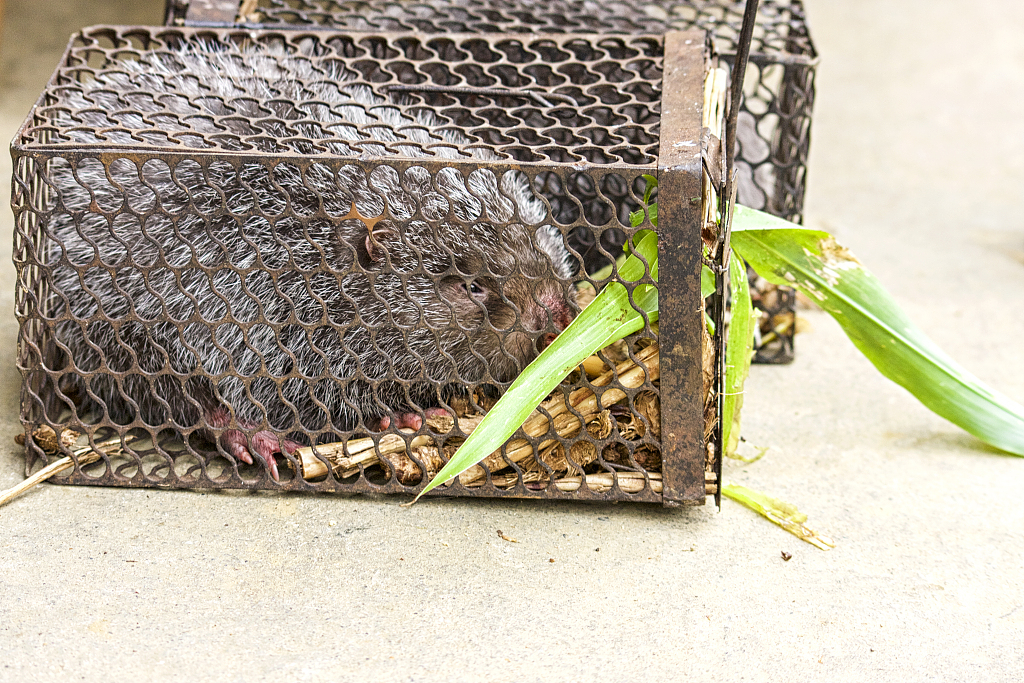Bamboo rat breeder Zheng Yanqing said his heart aches every time he inspects his farm, where more than 3,000 bamboo rats clamor for food.
The travel restrictions triggered by the novel coronavirus outbreak have already severed food supplies, and a new ban on the wildlife trade has disrupted the business boom straddling the Chinese Lunar New Year.
"The rodent multiplies fast, and we're running out of food supplies and space," said Zheng, director of a bamboo rat cooperative in Shangrao, east China's Jiangxi Province.
"Almost 70 bamboo rat farmers in the neighborhood rely on us for sales, and many of them are registered poor families," he added.
Farming bamboo rats were seen as a way to help poor farmers out of poverty in southern provinces that abound in bamboo and sugar cane – the rodents' staple. But now, many breeders risk losing money as all wildlife consumption is banned.

Unfortunately, according to Zhong Nanshan, China's top respiratory expert who heads a government-appointed panel to help control the epidemic, the bamboo rat could be one of the intermediary hosts of the new virus.
Since January, authorities have shut down hundreds of thousands of restaurants selling wild meat. The National Forestry and Grassland Administration said about 2,800 bamboo rat and badger breeders have been sealed off indefinitely.
On February 24, more than a month after trading was suspended, the Standing Committee of the National People's Congress passed a resolution to ban the trade and consumption of wildlife. To reduce the impact on tens of thousands of breeders of animals, such as bamboo rats, frogs and turtles, the resolution asked relevant authorities to create a "white list" for edible species, leaving room to exempt certain species. It also pledged to compensate breeders affected by the banned list and help them shift to other businesses.
With the exemptions yet to come, Zheng said, "I think it is OK that the government wants us to shift to other businesses, but all I can do now is to wait, which has cost me dearly."
With trade suspended indefinitely, the director said he is obliged to expand his farm and keep supplying food as new bamboo rats are born. If not, he would have to watch them die in overcrowded dens. Some smaller breeders have opted to starve the stock to minimize losses.
For more:
Shenzhen, a mirror in China's campaign against game meat consumption
Bullfrogs and soft-shelled turtles back on the menu
Experts weigh in on possible ban of all wildlife trade and consumption
(All photos via VCG)
(If you want to contribute and have specific expertise, please contact us at nature@cgtn.com)
Source(s): China Daily